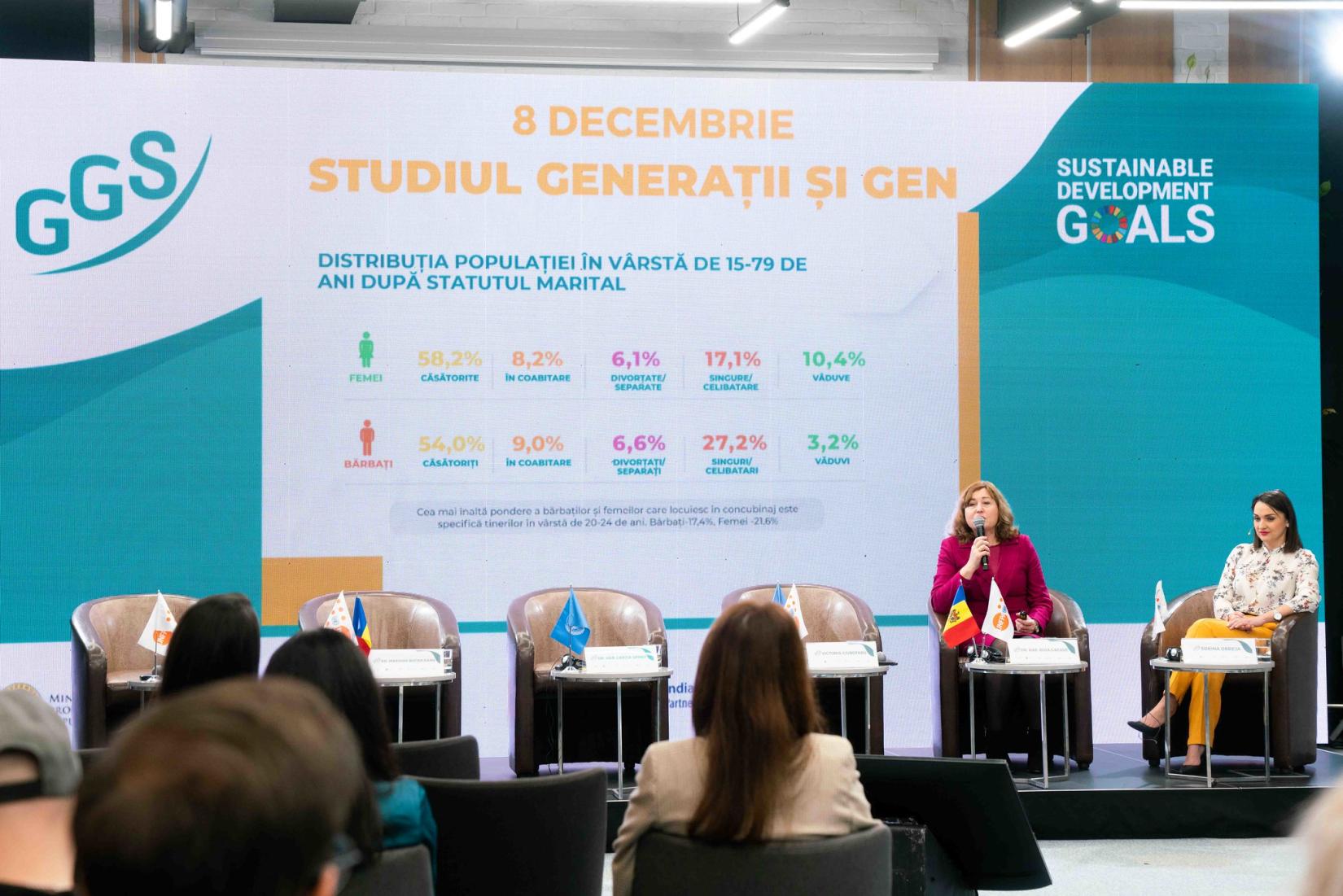GGS: More than half of Moldovans believe there should be at least 3 children in the family
08 December 2021
- More than a half of Moldovans believe there should be at least three children in the family, while in reality there are less than two on average, and 15% wish to emigrate in the next three years, „Generations and Gender” Survey (GGS), the most complex demographic study in the history of the Republic of Moldova, reveals.
The study was presented today by UNFPA Moldova in the partnership with the Ministry of Labor and Social Protection.

12% of women respondents and one in ten men respondents said they had problems conceiving a child, especially respondents in urban areas and in Chisinau. 16% had difficulties conceiving the second child, and the cause of infertility had not been identified in half of cases.
At the same time, only 5% of respondents admitted that they succeeded in keeping work-life balance. Women, 80% of whom are responsible of cooking, are the most exhausted (70% of women respondents), especially in families with children.
“Demographic changes motivate us to implement gender-sensitive and family-friendly policies, so that women and men can equally accomplish their professional and family aspirations. We also intend to create conditions for the Moldovan diaspora to come back home and contribute to the social and economic development of the country. It is the responsibility of the Government to scrutinize and anticipate demographic trends in order to attenuate potential negative effects while building on the positive results of demographic changes,” Natalia Gavrilita, Prime Minister of the Republic of Moldova, said.
According to GGS, 15% of Moldovans wish to emigrate in the next three years, most of them young urban residents aged between 15 and 34. Half of them have earned higher education.
GGS also shows that relations between generations are strong. An absolute majority believe that children must support their parents financially and that parents should move to their children if they cannot take care of themselves. One in five Moldovans have felt lonely lately and this feeling is getting stronger with age, especially among women.
“Moldova is not the only country in the region that is going through these demographic changes. However, while many perceive demographic changes as a crisis, they also represent an opportunity. People live longer, and women and young people have more life choices. Evidence-based policies, based on GGS data, must respond to the real needs of the people and help them accomplish their reproductive and professional aspirations, while offering better living standards to everyone, in the spirit of equality and inclusion,” Nigina Abaszada, UNFPA Moldova Resident Representative, said.
“Generations and Gender Survey offers us the necessary data that will guide us in transforming demographic challenges into opportunities for the Republic of Moldova,” Marcel Spatari, Minister of Labor and Social Protection, said at the presentation of GGS. “Next year together with UNFPA we will launch a series of public debates about demographic resilience based on key conclusions of GGS, in order to identify gaps in existing policies and to propose evidence-based responses,” Minister Spatari added.
GGS Survey was conducted among 10,000 respondents from over 153 localities in Moldova. GGS data includes analysis of over 100 indicators concerning demographic changes in the country. The survey shall be conducted in three waves, every three years, in order to observe the changes in the society, thus providing strong support to decision-makers, academia and civil society in promoting evidence-based policies, as well as in better understanding of the needs of women and men, of youth, adults and of the elderly in our country. At the same time the survey data will be used to monitor SDGs and implementation of the agenda of the International Conference for Population and Development.
GGS was conducted in Moldova by UNFPA Moldova in partnership with the Ministry of Labor and Social Protection, Netherlands Interdisciplinary Demographic Institute (NIDI), India-UN Development Partnership Fund and the National Bureau of Statistics of Moldova. GGS was conducted within a global Programme which to-date covers 24 countries.




